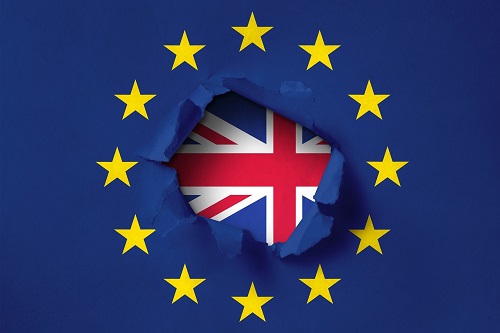pixabay image
By
Tom Arms
The European Commission and the British government have agreed terms for a 21-month transition period as part of Brexit. Is everyone happy? No, it is more a case of almost everyone being unhappy.
The deal is basically that Britain remains in the customs union and the single market for another 21-months after 31 March 2019. Those EU nationals who arrive in the UK after March 2019 will have the same residency rights as those in the country before March 2019.
The thorny issue of Northern Ireland is effectively kicked into the long grass as it has been throughout most of British history. The border between the northern and southern halves of the island will remain open and if no alternative is negotiated than there is a fall-back position of EU regulations being applied to Northern Ireland.
Basically they have agreed another two year extension, but to do it Theresa May had to cave into EU negotiators on things such as Northern Ireland, fishing, and immigration. All these are red lines for the Brexiteers who are now threatening to vote against the arrangement.
The only ones who like the deal are the British business community. The pound and stock market soared on the news. Businessmen like the arrangement because it gives them AT LEAST another 21 months to prepare for full scale Brexit.
I stress AT LEAST because one of the political truisms is that there is nothing more permanent than the temporary. Politicians are particularly fond of the temporary Band-Aid solution for insolubles such as Brexit. It provides time for the public to reflect and hopefully forget as the fast-paced news cycle pushes their attention towards other issues.
Of course, the Brexiteers are furious. Former UKIP leader Nigel Farage has dubbed Mrs May “Theresa the Appeaser” and the lead Tory Brexiteer Jacob Rees-Mogg has threatened a backbench revolt to sink the deal.
Anti-Brexiteers are also displeased. They want clarity and all they see before them is years and years of debilitating political fog.
But there is a ray of hope for opponents to the latest deal. It is Gibraltar. Spain is making noises that it might veto the agreement unless a satisfactory deal on Gibraltar can be reached between Madrid and London. The Spaniards are thinking along the lines of joint sovereignty of The Rock, or, at the very least, control of the airport.
The British are wedded to the principle of self-determination which means that the 34,500 Gibraltarians decide whether they want to be British or Spanish. So far every vote on the issue has been overwhelmingly in favour of British sovereignty. Gibraltar is just one of many potential spanners in the Brexit machine.
Tom Arms
I am a journalist, entrepreneur and historian with extensive experience in print, web and broadcast journalism. I started as a diplomatic correspondent, wrote several books (The Falklands Crisis, World Elections On File and the Encyclopedia of the Cold War), and then in 1987 started my own business (Future Events News Service, www.fensinformation.com) which over 25 years established itself as the world and UK media’s diary. Our strapline was: “We set the world’s news agenda.” I sold FENS in December 2012 but retained the exclusive broadcast rights to all of FENS data. To exploit these rights I set up LookAhead TV which produces unique programmes which “Broadcasts Tomorrow Today” so that viewers can “Plan to Participate.” LookAhead has appeared regularly on Vox Africa, Radio Tatras International, The Conversation and Voice of Africa Radio.
In addition to being a syndicated broadcaster and columnist on global affairs, Tom is also available for speaking engagements and can be contacted on Twitter, Linkedin and email: [email protected].



No Comments Yet!
You can be first to comment this post!